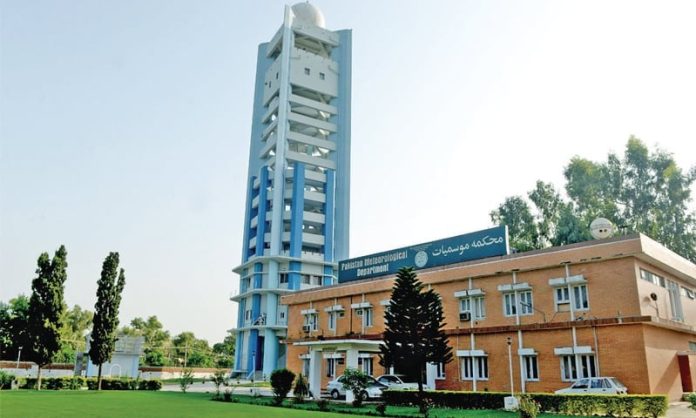ISLAMABAD: The Pakistan Meteorological Department (PMD) has warned of an unprecedentedly high risk of a severe dengue outbreak in the country this season, particularly from September 20 to early December, due to favorable weather conditions and widespread flooding.
According to PMD’s Dengue Alert-I, dengue fever has become a persistent public health threat over the past decade, with major outbreaks typically reported during the post-monsoon season.
Scientific analysis shows that dengue risk intensifies when temperatures remain between 26–29 C for 3–5 weeks, relative humidity exceeds 60%, and rainfall surpasses 27 mm with a lag effect of up to three weeks.
Dengue mosquitoes are most active two hours after sunrise and two hours before sunset, while their breeding slows only when temperatures fall below 16 C.
This year, prolonged heavy rains, river overflows, and water releases from reservoirs have inundated large parts of Punjab and Sindh, including urban centers. Villages remain submerged, millions are displaced, and shelters are overcrowded.
The resulting stagnant water and poor drainage have created highly conducive conditions for mosquito breeding and dengue transmission.
PMD cautioned that the combined impact of favorable weather thresholds and flood-related waterlogging has made conditions ripe for dengue onset from September 20, 2025.
The risk is particularly high in Karachi, Lahore, Islamabad, Faisalabad, Sialkot, Rawalpindi, Peshawar, Sukkur, Hyderabad, and Multan, as well as across flood-affected areas nationwide.
The department has urged all stakeholders, including health departments, local administrations, and the general public, to immediately adopt pre-emptive measures to counter the looming outbreak.
National health agencies and dengue control centers have been advised to remain on high alert, strengthen healthcare preparedness, and intensify vector control operations.
The authorities have been directed to monitor environmental and meteorological data regularly, conduct widespread fumigation, spray larvicides, and clear stagnant water in flood-hit areas.
They have also been asked to integrate mosquito control measures into all flood relief operations, launch public awareness campaigns through TV, radio, mosques, and social media, and coordinate with disaster management bodies to ensure that shelters remain clean and dry with proper sanitation facilities.
The public has been advised to remove or empty containers that collect rainwater around their homes, cover all water storage properly, and use mosquito repellents, nets, and coils—particularly during early morning and late afternoon when mosquitoes are most active.
People are also urged to wear long sleeves and pants, keep doors and windows screened or closed, and in flood-affected or temporary shelter areas, maintain hygiene, avoid standing water around tents, and use treated or boiled water.
The PMD has advised stakeholders to consult its official website www.pmd.gov.pk for continuous updates and official guidance. –Agencies



